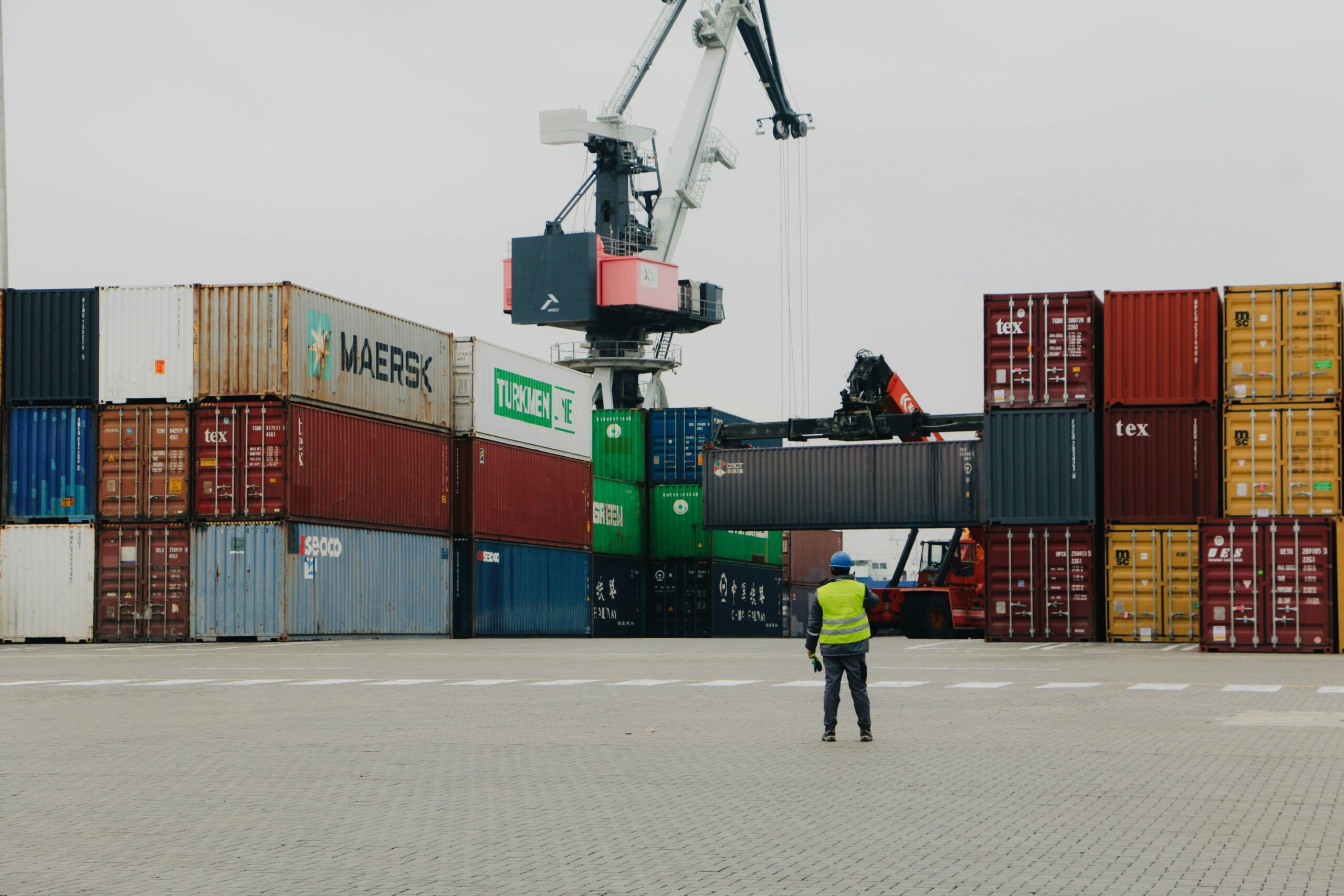Date of publication: 9 September 2025
Alina Borovets, Attorney at Law
Source: Mind
Errors in customs documents can cause a company millions in losses and even become grounds for criminal proceedings. Changes in legislation that have come into force in recent years have tightened controls and significantly expanded the powers of customs authorities. In these circumstances, it is important for businesses to know how the new inspection system works and what position the courts take.
Post-customs control: what does it mean for companies
In connection with the implementation of EU law and the adoption of Law No. 3926-IX of 22 August 2024, which came into force in April 2025, the institution of post-customs control was introduced in Ukraine. This became the starting point for the formation of new practices for inspections and appeals, and also set new benchmarks for judicial control over the actions of customs authorities.
Law No. 3926-IX harmonised the provisions of the Customs Code of Ukraine with EU legislation, establishing a comprehensive post-audit system. The essence of the innovation is that inspections have moved from the ‘border’ to the sphere of post-customs analysis. At the same time, the time limits for control have been significantly extended: whereas previously an inspection could only be carried out within 30 days, this period is now five years.
The law also provided customs authorities with broader tools for gathering information: the use of an automated risk management system, international data exchange, requests to other state institutions, etc. In addition, Order No. 72 of the Ministry of Finance dated 6 February 2025 detailed the mechanisms for implementing post-control, establishing a two-tier approach: initial analysis of declarations and, in case of violations, appointment of a documentary check.
As a result, both the requirements for transparency and correctness of customs clearance and the risks of customs re-examining long-completed transactions have increased for businesses.
Customs violations: risks and court practice
Most often, businesses face accusations of improper declaration of goods, concealing them from control, or unlawful exemption from mandatory payments. These are violations covered by Articles 472, 483, and 485 of the Customs Code of Ukraine (hereinafter referred to as the CCU).
In fact, any discrepancy in the documents submitted may be grounds for drawing up a report: discrepancies in weight or value, errors in determining the product code, lack of certain permits or incorrect product labelling.
During the proceedings, the goods may be seized and, if guilt is proven, confiscated as state revenue. Significant penalties are also provided for, in particular under Article 483 of the CCU (movement or actions aimed at moving goods across the customs border of Ukraine with concealment from customs control) in the amount of up to 100% of the value of the goods.
At the same time, when considering cases in court, the key issue is the presence of intent. The Supreme Court has repeatedly emphasised that technical or formal errors in declarations are not grounds for liability if there was no intention to mislead customs.
Proving the absence of intent (for example, confirming that the discrepancies arose due to a technical error or human factor) significantly increases the chances of a positive decision for the business. At the same time, the courts carefully check the evidence base: whether samples of the goods were taken, expert studies were conducted, and whether the characteristics of the products were confirmed by laboratory conclusions. A mere discrepancy between the declaration and the labelling on the goods is not sufficient; substantiated evidence is required.
A case handled by Ilyashev & Partners Law Firm, in which we defended the interests of a large Turkish engineering company in a dispute with Chernivtsi Customs, is illustrative. The customs authorities accused the director of the foreign company of providing false information about the weight and value of the goods and, on this basis, attempted to hold him liable for violating customs regulations. We proved in court that the difference in the figures was due to differences in customs procedures between Ukraine and Turkey, and that the goods themselves had been delivered in full and at the price specified in the contract. No damage was caused to the state budget, as all customs duties had been paid.
The court of first instance found that there was no offence, closed the proceedings and ordered the goods to be returned to the owner. The appellate court left this decision unchanged, finally putting an end to the dispute in favour of the business.
This example demonstrates that even in cases of serious allegations, the key factor is the evidence base and the ability to prove the absence of intent. The courts pay attention to whether there was a real attempt to conceal the goods or avoid payment, or whether it was a matter of formal inaccuracies.
Criminal liability for smuggling goods
An additional challenge for businesses arose on 1 July 2024, when Ukraine introduced criminal liability for smuggling goods for the first time. Its composition is largely similar to administrative violations under the Customs Code of Ukraine (non-declaration, submission of forged documents, concealment), but now such actions are classified as a crime only if they exceed a certain value threshold.
This refers to commodity smuggling (Article 201-3 of the Criminal Code of Ukraine):
- significant amount (from UAH 7.57 million) – a fine of UAH 170,000 to UAH 425,000;
- large amount (from UAH 15.14 million) or committed by prior conspiracy by a group of persons, an official using his or her official position, or a person who has already been convicted of smuggling – a fine of UAH 850,000 to UAH 1.275 million or imprisonment for a term of 5 to 10 years, with additional deprivation of the right to hold certain positions or carry out activities for up to 3 years and confiscation of property;
- organised group – imprisonment for a term of 7 to 11 years with additional sanctions in the form of a ban on professional activity and confiscation of property.
Risks for businesses have increased significantly: a mistake that previously resulted in only an administrative fine can now be grounds for criminal proceedings. This reinforces the need for even greater attention to customs procedures, correct declaration and documentation of foreign economic transactions.
Failure to declare goods or currency values
This violation occurs when a citizen or enterprise fails to accurately declare goods, currency or other items subject to mandatory customs declaration. A typical case is crossing the border through the ‘green corridor’ with goods exceeding the non-taxable limits without filling out a declaration. Failure to declare is punishable by an administrative fine of 50% to 100% of the value of the goods subject to customs clearance.
Law No. 4323-IX allows for the alternative application of confiscation of goods instead of a fine or, in addition to the minimum fine, confiscation of the items involved in the violation, i.e. the court can now choose a proportionate sanction.
It is important to note that previously, the penalty for non-declaration was more severe: confiscation of goods was mandatory and the fine was actually 100% of their value, which even exceeded the penalties for some more serious violations (e.g., smuggling). Law No. 4323-IX in 2023 eliminated this inconsistency, making the liability for non-declaration more commensurate with the nature of the offence.
With regard to currency, it is separately established that a citizen’s failure to declare cash currency in excess of the permitted amount shall result in a fine of 20% of the amount exceeding the limit. In court, cases of non-declaration by citizens (for example, when undeclared currency or goods are found) are usually considered by customs authorities or district courts in a simplified procedure, since the fact of non-declaration is obvious.
Such decisions are rarely appealed, except when the person proves that the mistake was unintentional or that there was provocation on the part of the control authorities (however, such arguments are not very successful). In general, if the fact of non-declaration is established (goods found during inspection), prosecution is almost inevitable. However, the court may take into account the insignificance of the violation: for example, in the case of a slight excess of the norms or obvious unintentionalness, it may impose a minimum fine.
Key tips for businesses working with customs
Customs violations are one of the most sensitive areas for businesses today, as they combine high financial risks, the possibility of property loss, and even criminal liability. At the same time, modern judicial practice demonstrates a departure from the formal approach of customs and an emphasis on individualisation of liability and proof of intent. This opens up additional opportunities for businesses to defend themselves, provided they have a proper evidence strategy and carefully prepared documents.
The implementation of EU law, in particular through Law No. 3926-IX, has significantly changed the rules of the game, shifting the focus of control to post-customs audits and significantly extending the time limits for inspections. This approach increases the requirements for transparency in foreign economic operations and strengthens the role of compliance in the customs sphere. For businesses, this means the need to systematically invest in internal control procedures, minimise the risk of formal errors and prepare in advance for possible inspections.
Key recommendations for businesses regarding customs control:
- introduce internal compliance control. Checking documents before submitting a declaration significantly reduces risks;
- prepare for post-audit. Remember that customs can check transactions for up to 5 years;
- develop an evidence strategy. In the event of a dispute, it is important to prove the absence of intent and have a proper evidence base;
- engage external legal advisors. Timely engagement of a lawyer to prepare the documentary base will save you time and money.
In today’s environment, effective work with foreign economic contracts and customs declarations requires not only competent documentation, but also a comprehensive legal strategy. Only a combination of proper preparation, attention to detail and timely response to customs claims will allow businesses to successfully protect their interests and avoid excessive sanctions.

